Batman: Classical Liberal
I think of Batman pushing his Batmobile up a hill, forever and ever, only for Gotham City to stay just functioning enough that people are paralyzed by indifference. Batman is much like the bloated government we have these days. He’s very good at catching criminals and letting the corrupt justice system let them go. If he cared, as he claims to, about the city he’d take measures to fix something. He’d see the futility of his crusade and change something. But America is good at fighting the Cold War and not much else and Batman is a good detective and crime fighter and though his CV is long and impressive, he can’t do much more than invest his billions in new gadgets and keep a massive surveillance apparatus that is equally inept as it is terrifying when employed. Batman is a reactionary, but one in service to the status quo, that is a force to bring Gotham “back to Fresh Prince”.
Batman is “tough on crime” and tries to be “tough on the causes of crime”, but the result is more crime. The purpose of a system is what it does (POSIWID) has gained traction in the dissident space lately, so we can say that the purpose of Batman is to have more criminals to beat up and arrest. In fact, you could further say that the purpose of Batman is to invite more deranged and fanatical psychopaths to Gotham City so that he can hunt them down, like a ramped up version of Richard Connell’s classic short story “The Most Dangerous Game”.
A modern (and incorrect) critique of Batman is that Bruce Wayne should be spending his vast sums of wealth to attack poverty, not poor people. To open mental health hospitals instead of continuing to beat up the victims of mental illness and serious abuse. This is as deranged as the criminals Batman tries to capture. Gotham City is a corrupt hell hole. Every system that is built up is infected with the rot of corruption, except Batman. Were Batman ever serious about his attempts to curtail crime and violence in Gotham, he would use his money and influence to destroy the inept and corrupt institutions of the city and replace them with institutions that answered only to him. Draco was known as a cruel tyrant, its where we get the word “Draconian” from. I’ve never heard him called an ineffective tyrant.
The most popular and enduring version of the Batman myth is “The Dark Knight” film trilogy. Here we see Batman in his most liberal form (Note: Many say that Batman in The Dark Knight Trilogy is a Neo-con. Batman never branches out his brand of justice internationally. He kidnaps a Chinese guy, but that’s to bring him to justice in Gotham. Regardless, I see Neo-conservatism and classical liberalism as Pepsi and Coke. Same Shit, different colored can).
In the first film, Batman is introduced to the League of Shadows, he witnesses first hand the corruption that governs the city and he believes that he can “right the ship” and avoid the League’s prescription for the city, which is to raze it. Batman takes the role of Abraham here, negotiating on behalf of Sodom and Gomorrah. Surely there are 5 good people living in Gotham and therefore, the city cannot be destroyed.
Ras al Ghul is not God and while both pursue justice, God’s justice is perfect and The League of Shadows is not. Batman is able to overcome The League, he would not be able to overcome God. The League goes through with their scheme to destroy Gotham and Batman is able to foil the plot. What’s more, he is able to overcome the forces that bring about the League of Shadows. That force is called entropy. Gotham is going to keep getting worse because it is dying. The engine that runs it as a society is slowing until it eventually stops. All Batman is doing is getting a few more miles logged on the odometer.
I imagine if Ras Al Ghul was played by Ned Beatty, he might have convinced Bruce Wayne to stop fighting the inevitable. “You have meddled with the primal forces of nature, Mr. Wayne. You think you have merely stopped a terrorist plot. That is not the case. It is ebb and flow, tidal gravity. It is ecological balance. That is the atomic and subatomic and galactic structure of things today. And you have meddled with the primary forces of nature and you will atone!”
Thomas Wayne is more concerned with his career as a doctor than as the head of Wayne Enterprises or as his role as patriarch to the city of Gotham. He inherited these roles, they were not won by the force of his will, but all the same, they were his responsibilities. Like many WASPs in America, the burden of responsibility was delegated to those who were interested in running a city or state, those who were attracted to power and were most susceptible to its corrupting influence. Now as Batman, Bruce Wayne wishes to undo all of the natural consequences of his father’s failures, not realizing that Gotham will just end up back where it was before Batman did something.
In a training scene between Ras Al Ghul and Bruce, Ras explains that Bruce was not responsible for his parent’s death, but rather it was Thomas Wayne who should shoulder the blame. Bruce responds that the killer had a gun and that his father was not trained to fight. Ras responds with a line that could act as the film’s thesis. “Your training means nothing. The will means everything. The will to act.” Thomas Wayne had no will. And it was his weakness and disinterest and a long line of disinterested Waynes that brought Gotham to it’s current state.
Batman, like America itself, is unwilling to question how society got to this state. Crime in Gotham City is out of control because the system has been corrupted. A system that his father, Thomas Wayne, helped to build or at least, tacitly accepted. In Batman Begins, we are introduced to the Wayne family’s two enduring contribution to the city, Wayne Enterprises and the Monorail, which is a cheap public transit system for the city. Both of these pillars of the city are “handled by more interested men”. Both of these pillars enable the crime in Gotham.
The monorail that was supposed to be a way for the city to “unite” became a publicly funded, criminal circulatory system. Since it is a “public good”, any attempts to clean it up or improve it, would need approval by the very corrupt apparatus that uses it for their nefarious purposes. Not only do petty criminals and hired thugs use the monorail to commit acts of violence and intimidation, but the League of Shadows even uses it in their plan to destroy Gotham. The other, less obvious failure of Thomas Wayne is his delegation of Wayne Enterprises to banal businessmen whose sole purpose is to increase the value of the company on paper, sell it off to the highest bidder who has no concern for what the loss of jobs in Gotham will mean for the already stagnant economy and the outrageous crime epidemic in the city.
One of the acts of William Earle, the replacement CEO of Wayne Enterprises after Thomas Wayne’s death, is the creation of several projects with military potential, including the microwave emitter that the League of Shadows intends to use to destroy Gotham. Thomas Wayne’s soft, “compassionate” view of Gotham and his lack of will to change a broken system not only becomes Bruce’s problem to “solve” down the line, but also leads to his and his wife’s deaths and the creation of Batman. Both the monorail and the ousting of Earle by Bruce at the end of the film show that Batman has the will to act, but only so far as to bring things back to the way they were when he was a child.
The threat of Gotham’s destruction is, therefore, increased in the second film. Before, Batman was fighting rational villains. Crime bosses and organizations with rational leadership and understandable motives. Batman, having vanquished these threats, invites a greater threat to overcome him. The Joker, the avatar of irrationality. His motives are his own, his means are outside normal constraints. He cannot be bribed, he cannot be reasoned with or coerced. Just as Batman goes outside the law to achieve his goals, so too does the Joker go outside the “laws” of crime to achieve his.
The gangsters who let the Joker loose on Gotham are small minded, in the Joker’s estimation. They want money, power, and influence. They wouldn’t blow up a hospital because there is no money in that. They wouldn’t turn Harvey Dent, they’d kill him and find another DA who would go with the flow. They wouldn’t blow up two ferries because they’re not looking to destroy the services and institutions and constituents that they exploit for their benefit. They wish to use the city to enrich themselves. Even the League of Shadows methods were to bring about order and balance after the destruction of Gotham. Batman’s intervention in the plot forced entropy to unleash a greater threat.
The Joker does not want to just destroy Gotham, but rather destroy the idea that Gotham can be saved. That human nature is the reason for Gotham’s state of decay, not just the machinations of a few powerful, evil people. Harvey Dent represents a chance at legitimate reform through the system that exists and therefore, must become as corrupted as the city he is fighting to change. Batman punches the bad guy and locks him away and saves the citizens, but loses the fight. He loses Harvey Dent and the argument that the system can be saved.
Batman does what Earle does in the first film, perverting Wayne Enterprises and it’s technology for his own gain. Earle only builds weapons so Wayne Enterprises looks more attractive on the stock market. Batman takes it a step further, using his massive surveillance device in order to stop the Joker. His conscience in the form of Lucius Fox, whom Bruce entrusted with Wayne Enterprises at the end of the first film, would resign in protest if the machine was not destroyed at the end of the film. But for how long would this machine go away?
Terrors once invented cannot be un-invented. Ideas in the mind, especially the most twisted and evil, stay there long after a man has thought them. It wouldn’t be difficult for Batman to rebuild his leviathan. In fact, a more reactionary Batman, a more tyrannical Batman would use the machine to achieve what he could not before. But that would mean destroying not only the society that exists and was built by his father and so on, but also admitting that the Joker was correct and that there is no voting or reforming your way out of this.
The “Meta” analysis of the increasing threats to Gotham is, of course, the writers need to “out do” what they did last time. He fought a bad guy in the first movie, maybe he can fight 2 in the next? And after that, he can fight an army. With sharks with lasers attached to their heads. He can even jump the shark on water skis.
In reality, if you ignore a problem, if you kick the can down the road, the problem gets bigger and harder to solve. A wet spot on the wall of a dam if ignored, becomes a crack that leads to destruction. A levee system in New Orleans that is ignored will fail when combatting a severe storm. Jungles are natural and gardens are not. If you build a garden in the jungle and fail to maintain it, you cannot be surprised when it gets swallowed up.
That is what happens in “The Dark Knight Rises”. Batman retires, both physically and emotionally broken by the fight against the Joker in “The Dark Knight”. Things seem to be running fine in Gotham. The city passed “The Dent Act” in order to root out organized crime and corruption, in memory of Harvey Dent, whose crimes have been hidden and whose death was blamed on Batman “for the greater good”. No matter how noble, people cannot live under a lie once they know it is a lie.
The Soviet Union fell not long after the Chernobyl disaster. The show “Chernobyl” details the causal relationship between lies and the fall of civilizations. No matter what the showrunner and writers and critics will tell you, the show is not an indictment of Donald Trump and his “lies”, but rather the societal apparatus whose function is to massage blatant lies into believable, feel good talking points.
If the Dent Act were passed under another name, for the noble reason that crime is bad for the city and as stewards of the city, it’s government must uphold the law for the benefit of it’s citizens, Bane could not have so easily taken control. But once he unveiled the lie, Bane destroyed the shreds of legitimacy that Commissioner Gordon and the city government had tried to build for themselves.
Bane is the synthesis of the first two film’s villains. He is the reckoning that Ras Al Ghul promised would come to Gotham, while also working outside the constraints of criminality that normally govern villains ala The Joker. He is the force of entropy, embodied in a large, hulking mass.
In Batman’s retirement, we see that Wayne Enterprises is also left to it’s own devices. The company is being taken over by a small minded businessman, who employs Bane to achieve his ends, only to end up as a dead body with a broken neck. The company ends up in the hands of Ras Al Ghul’s daughter because she was able to seduce and compromise Batman more effectively than Ras ever could have.
“Peace has cost you your strength. Victory has defeated you.” -Bane
That line has stuck with me more than any other from any film or show or even book that I have read. It is a perfect summary of Batman and America’s decline. The Global War on terror showed the world that America is not the end state of history. Our so called ideals and values, once undercut by the very individualism we wished to see replicated across the world, turned into nihilism, gender confusion, corruption and apathy in the face of destruction. The victory of the Cold War defeated us and we lost the day the towers fell and we were no longer invincible.
The rest of the Dark Knight Rises makes very little sense. After Batman is crippled and imprisoned, just as Gotham is imprisoned, we get a feel good story about Batman’s indomitable will. He is able to get his strength back, escape the pit of sorrow, plan an elaborate return to Gotham and save the day, while escaping from the nuclear blast and running away with Catwoman to live the rest of his days as just another man in the crowd.
This is a comic book movie, so of course this was how it was going to end. But think of what will happen next. Gotham has avoided destruction for the third time and the mantle of Batman is passed down to “Robin”, who lacks the will that Batman does. The forces of entropy have sent many waves of destruction towards Gotham and it was Batman’s interference that kept the city standing. Some guy, who is not Batman, donning the mask and doing Batman-like things, is inviting someone to kill him and destroy Gotham. In terms of a videogame, Robin is a level 1 character facing level 100 threats because he is taking over for a level 100 character in Batman. Batman even sees this problem in The Dark Knight, where he stops the lookalike vigilantes because they are untrained amateurs who will do more harm than good. Robin is “wearing hockey pads” and the next threat to Gotham will be prepared for Batman and wonder why winning was so easy.
The end of the Dark Knight Rises, then, can be seen as Bruce throwing in the towel and allowing Gotham to succumb to its fate, the fate of all great cities and civilizations. He did what he could and let his company, his city and his family name die because in the end, that was always going to be the outcome. From dust you came, to dust you shall return.



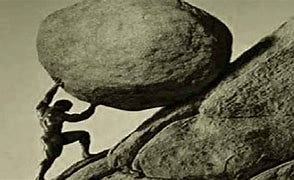
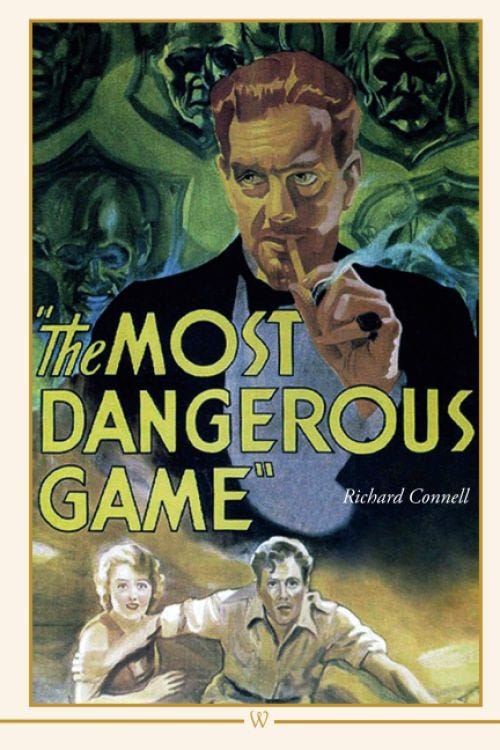

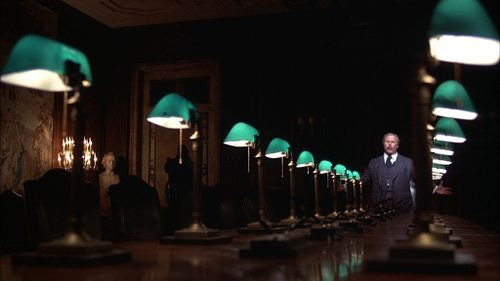
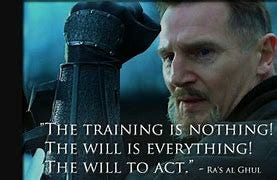
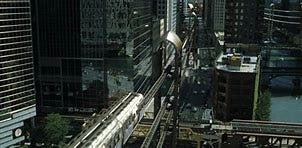
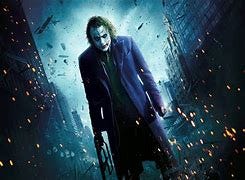
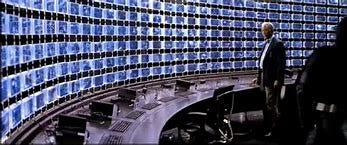


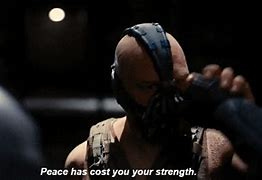

A few things. You say the monorail is used by the criminals for their nefarious schemes. When does this ever happen in the films? The League of Shadows uses it to deploy the microwave emitter, sure, but you make it sound like all the mob bosses are shown having meetings or using the system to transport their thugs and drugs or something. The idea that spending on basic public goods only entrenches the corruption is imporant to your argument, and the subway is a core of that, but you give zero evidence to back up your claim here.
You also claim Robin lacks Batman's will, citing zero examples. He seems pretty motivated--he's the one who convinces Batman to take up the mantle again, he resigns from the GCPD because he doesn't think he can fix things from within the system, and Batman sees fit to bequeath the Bat Cave to him at the end of the movie. I don't buy it.